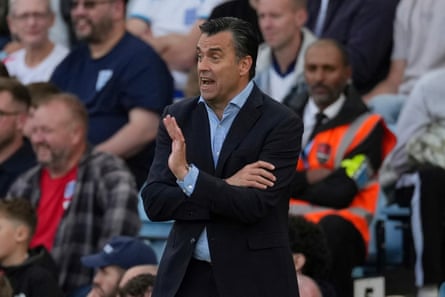England’s 2-0 victory over Andorra was an uninspiring affair, resembling a light cardio session rather than a competitive World Cup qualifier. The match lacked memorable moments, with the lone highlight being Declan Rice’s goal. Andorra’s defensive tactics stifled England’s creativity, raising questions about the essence of sport and the motivations behind such a defensive approach.
The stadium announcer's wry comment following England's 2-0 win against Andorra at Villa Park perfectly encapsulated the underwhelming nature of the match. It was a game devoid of excitement, resembling a light cardio session rather than a competitive World Cup qualifier. The contrast between the vibrant atmosphere of club football and the sterile environment of international fixtures was starkly evident.
The encounter felt more akin to a ceremonial parade, a display of pageantry where the focus was on appearances rather than substance. As the minutes ticked by, one couldn't help but question the purpose of it all, finding solace only in the fact that England executed the formalities with a degree of competence.
Ultimately, England achieved their objective of securing a victory, providing a gentle warm-up for the upcoming clash against Serbia. The most significant aspect of the match was the absence of injuries, a positive outcome in an otherwise forgettable affair. The game lacked any memorable moments, blending into a homogenous mix like a monotonous Tuesday afternoon.
The lone highlight occurred in the 65th minute when Andorra's defense momentarily lapsed, allowing Reece James to deliver a precise cross from the right flank. Declan Rice capitalized, heading the ball past the goalkeeper to extend England's lead to 2-0.
But what defines a successful game against Andorra? Goals are a necessity, delivered with regularity to prevent boredom from setting in. There should be no overwhelming sense of futility, no melancholic contemplation of time slipping away. After all, this is England, and Villa Park was buzzing with anticipation at kick-off.
Ebe Eze was given the freedom to roam in the number 10 role, tasked with injecting creativity into the attack. While he displayed initial energy, breaking down Andorra's rigid defensive structure proved to be a frustrating endeavor. How often has Eze faced such a stubborn wall of defenders?
In the 24th minute, Eze played a part in the move that led to Noni Madueke's cross being deflected into the net for an own goal, handing England the lead. From that point onward, the game descended into a repetitive pattern of attacks against Andorra's packed defense.
Madueke appeared to relish the opportunity, injecting some enthusiasm into England's play. Elliot Anderson also impressed with his ball control and fearless approach. However, Harry Kane was virtually anonymous, touching the ball a mere 12 times in 90 minutes, fading into obscurity.

Andorra, in essence, were the spectacle. Their sole purpose was to stifle and obstruct, yet their efforts highlight the challenge even top-ranked teams face. For Andorra, ranked low in the world, this was possibly their best result since a 2-0 defeat to France in 1998.
Andorra's approach to the game raises profound questions about the essence of sport. Their strategy revolves around preventing the opposition from playing football, a defensive tactic born out of necessity. With a small population, Andorra's participation in international football serves primarily to assert their national identity.
Their existence on the footballing stage is one of constant resistance, a perpetual battle against the flow of the game. From the outset, Andorra seeks to disrupt and halt proceedings, protesting the very nature of the contest. Yet, they are compelled to participate.
From the opening whistle, they employed tactics designed to frustrate and impede England's progress. England earned a free-kick within seconds, only for the ball to be repeatedly moved just out of reach, a display of audacious gamesmanship. But what sort of existence is this? What motivates such behavior?
Koldo Álvarez, Andorra's manager for the past 15 years, has endured a long and arduous journey. It took him 49 matches to secure his first victory. Andorra has found the net in just two of their last 25 games, with Liechtenstein being their most frequent victim. Perhaps they should channel the spirit of Liechtenstein into every match, embracing a carefree attitude.
However, there is a certain vision there. Andorra has become adept at losing with dignity, even if their approach makes life appear pointless. The last real thrashing was 7-0 to Portugal five years ago. One wonders what Andorra’s training looks like. Do they even use a ball?
Ultimately, the events at Villa Park hold little significance in the grand scheme of Thomas Tuchel's tenure as England manager. His primary task is to devise a strategy to overcome formidable opponents such as France and Spain in crucial knockout matches, a challenge that has historically eluded England.
Nonetheless, it would be unfair to suggest that England gleaned nothing from this experience. They gained a deeper understanding of the languid pace of a September Saturday and the inherent limitations of the game. Andorra may be hopelessly outmatched amateurs, but space remains a precious commodity, and incision must be earned through effort.
Tuchel has occasionally appeared perplexed by the task at hand, a man accustomed to intricate footballing philosophies now tasked with embracing simplicity and pragmatism. Perhaps there were subtle indications of progress. Anderson was a shrewd selection, and Tuchel's post-match comments were encouraging. Even a victory as uninspiring as this one serves a purpose, providing a foundation upon which to build.
